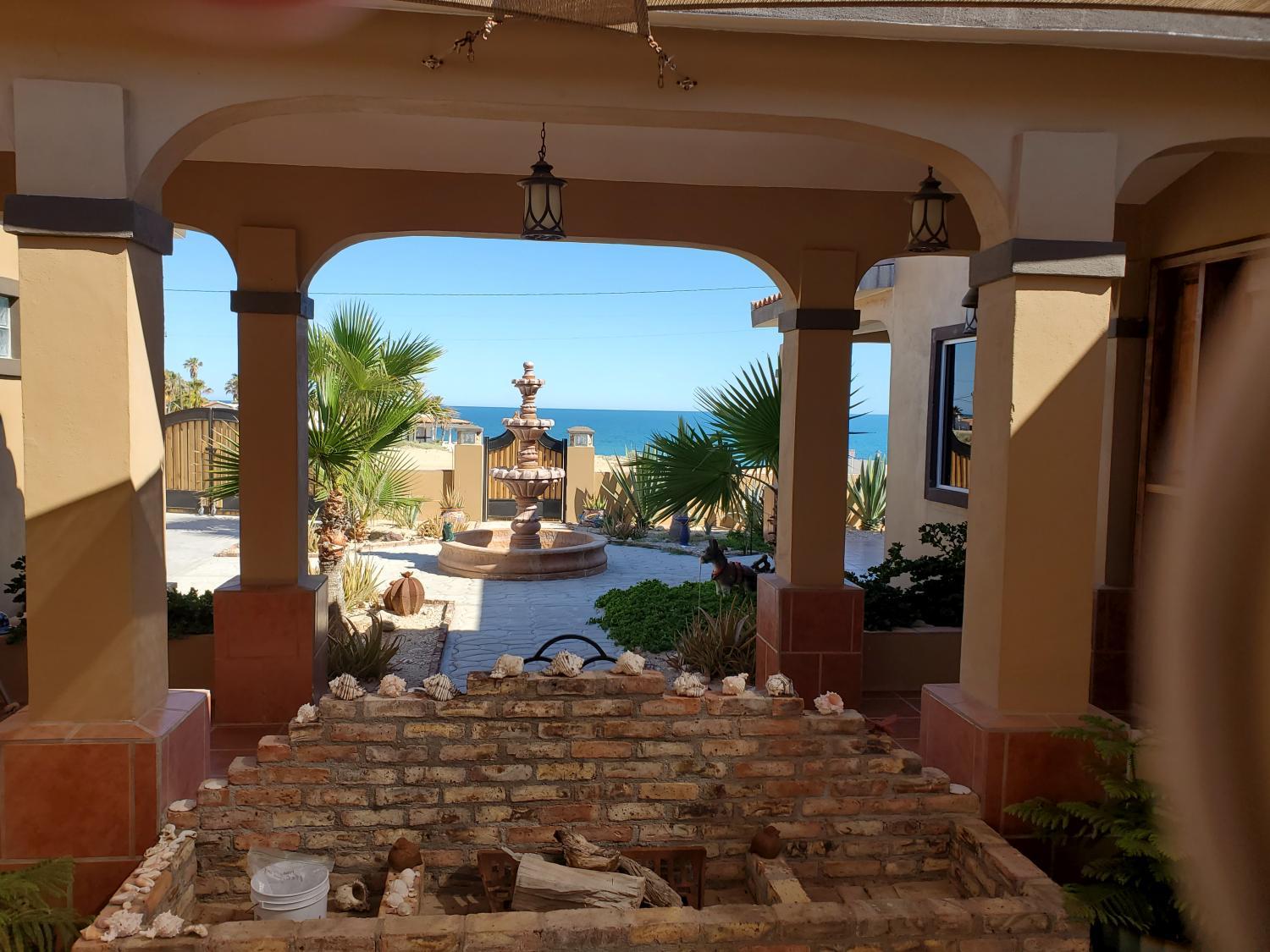 VIEW LARGER Phil and Connie Naylor's ocean view from their Rocky Point home is the closest they'll get to the beach during the coronavirus pandemic.
VIEW LARGER Phil and Connie Naylor's ocean view from their Rocky Point home is the closest they'll get to the beach during the coronavirus pandemic. Three years ago, Phil Naylor and his wife, Connie, retired to a seaside house in Puerto Peñasco, or Rocky Point, by the Sea of Cortez in neighboring Sonora, Mexico. It’s just a few hours south of their longtime home in Goodyear, but a world away from their busy, high-stress life in Arizona.
“We are in what we consider paradise,” Naylor said.
Their days were filled with walks on the beach, rounds of golf and outings with friends.
“I hate to admit, but we’ve got into playing Bingo,” Naylor added with a laugh.
Then the coronavirus hit, and in March the State Department issued a global travel advisory, telling U.S. citizens abroad to come home or prepare to stay put indefinitely. And the U.S.-Mexico border shuttered to all nonessential travel.
“If you are a tourist here in Mexico, it’s time to go home," U.S. Ambassador to Mexico Christopher Landau said during a Facebook Live on March 31. “If you are a resident here in Mexico, as I am, you have to think long and hard about your own personal situation.”
He told U.S. expatriates in Mexico to consider their own risk factors, access to health care and support network, but called the decision to stay in Mexico an individual one without a “right or wrong answer.”
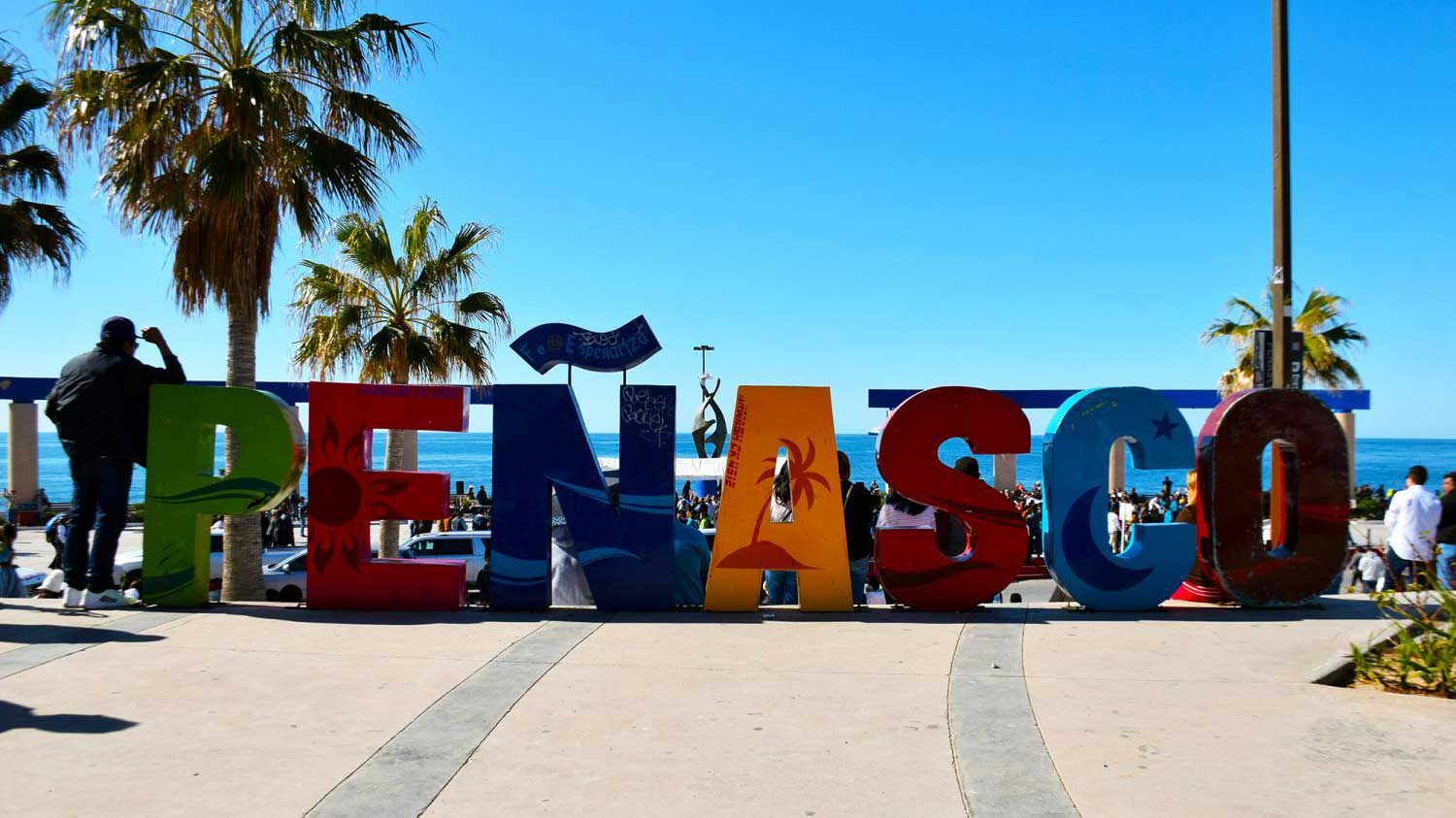 VIEW LARGER The Sonoran beach town Puerto Peñasco is a popular destination for Arizona tourists.
VIEW LARGER The Sonoran beach town Puerto Peñasco is a popular destination for Arizona tourists. Many expats decided to head north, concerned about access to health care and loved ones with the border closed and airlines canceling flights.
“We did consider going back to the States. I mean we still own a house in Goodyear,” Naylor said. But he added that his son and his family are currently living in that house, making it less than ideal for sheltering in place.
So, like thousands of the estimated 1.5 million U.S. citizens living in Mexico, the Naylors decided to stay in Rocky Point. They feel safe there.
City and state leaders reacted quickly to stop the spread of the virus — closing beaches and business and setting up checkpoints to keep visitors out during what should have been the busy spring season.
“With spring break just starting up and Semana Santa to follow, when you get 800,000 people coming through here in four to five weeks, it's a scary situation even without a pandemic going on,” Naylor said.
So far, Rocky Point has only two confirmed cases of coronavirus. And Naylor said it's comforting to see his community taking the pandemic seriously — though he knows it’s taking an economic toll on many. And it means the daily activities that made the Naylors' Rocky Point home a paradise are on hiatus.
“I would admit, it’s been a bit boring,” he said of spending spring’s perfect blue skied days indoors rather than by the ocean.
Still, the Naylors think staying in Mexico was the right decision.
“We feel comfortable. We’re here to stay. Unless something catastrophic comes up that makes our decision for us,” he said.
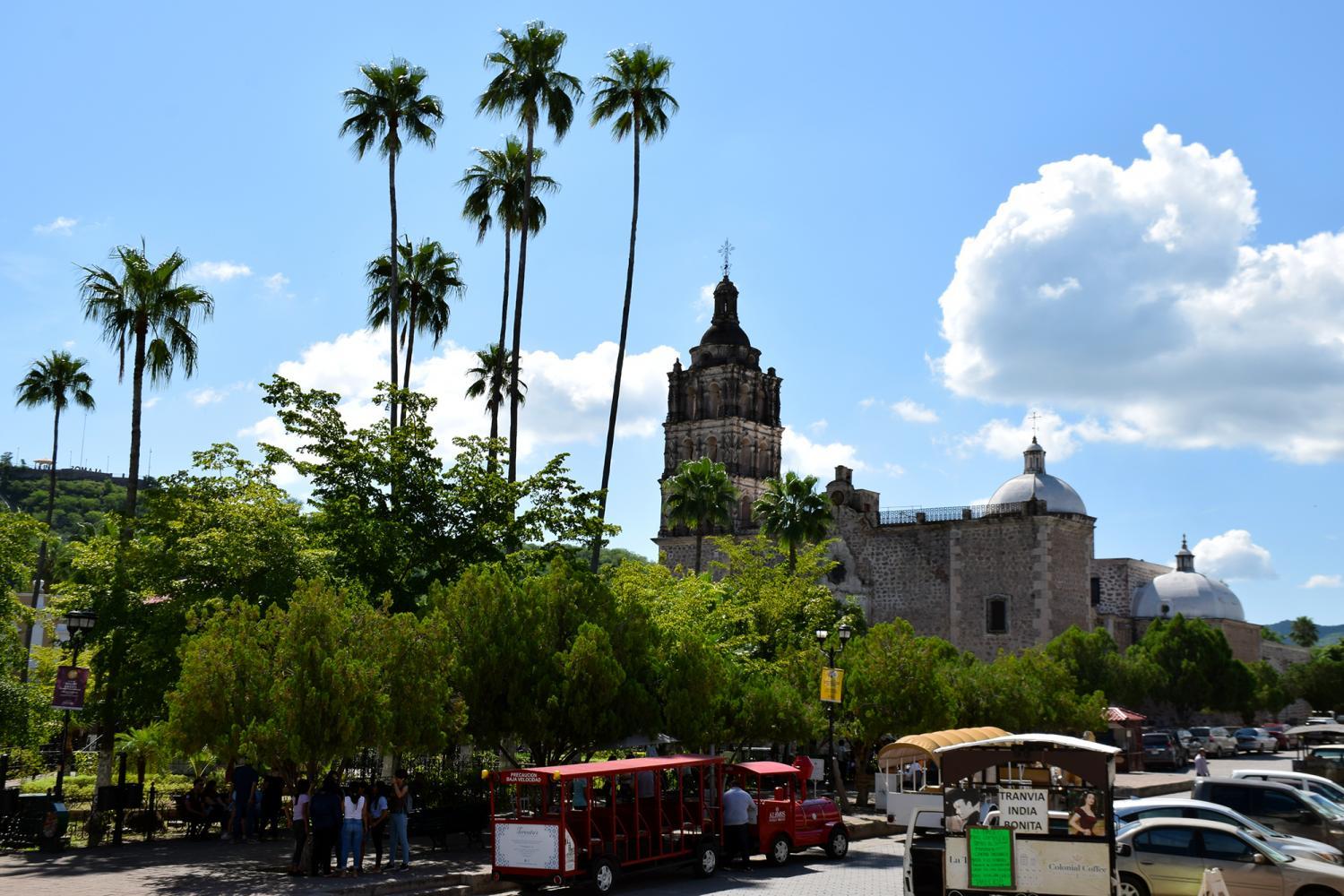 VIEW LARGER The main plaza in Alamos, Sonora.
VIEW LARGER The main plaza in Alamos, Sonora. Alamos
On the southern end of Sonora, Jennifer MacKay and her family live in the small, colonial town of Alamos. A popular haven for U.S. tourists and expats.
“We didn’t think for a second to go back, actually. You know, this is our life here, this is our home,” MacKay said.
Unlike some expats, the MacKays don’t have a home in the U.S. — just a P.O. box in Tucson. They have lived in Alamos for 25 years, raised their daughters here, and own the busy El Pedregal hotel on the outskirts of town.
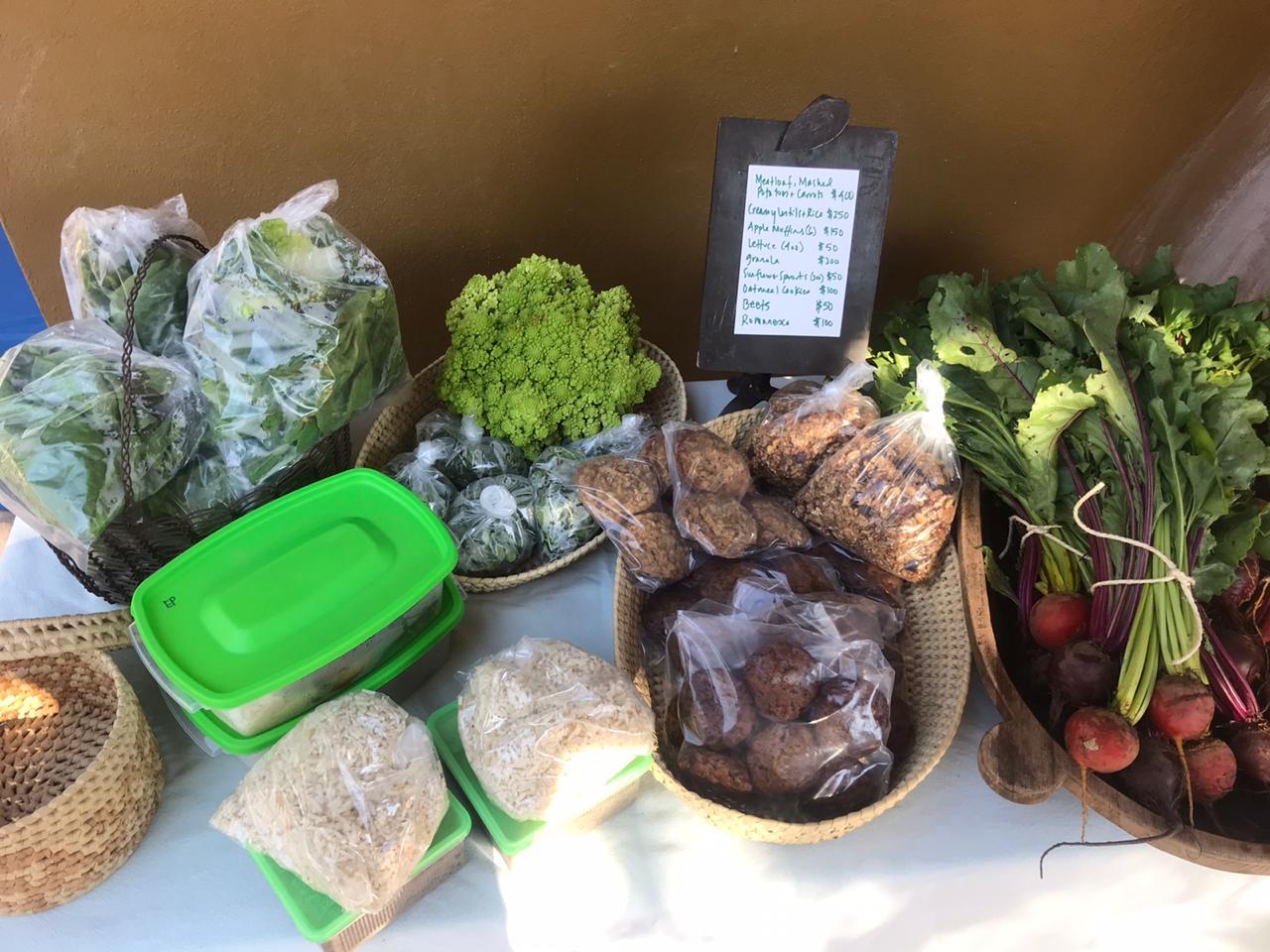 VIEW LARGER Fresh food for sale at the pop-up market the MacKays started in Alamos, Sonora, during the coronavirus pandemic.
VIEW LARGER Fresh food for sale at the pop-up market the MacKays started in Alamos, Sonora, during the coronavirus pandemic. “The phone was ringing all the time in the office, and making reservations and receiving guests and cleaning rooms, and making breakfast and, you know, we have a hotel. We have nobody here now,” MacKay said. “Everything canceled or postponed. So it just became sort of deadsville on the business front.”
Like many small-business owners in Mexico, the MacKays are worried as they try to keep their staff paid during the pandemic with little help from the government. Unlike the U.S., Mexico hasn’t provided relief like small-business loans.
But it’s not all bad. MacKay said the family is using the down time at the hotel to finish outstanding projects and renovations on the property. And in the afternoons they take a dip in the hotel pool, or ride mountain bikes on the 300-acre nature preserve they established nearby.
“We’re in a very ideal situation in that we live on 20 acres at the end of a dirt road, surrounded by nature,” MacKay said. “You know, we own a small resort. So where better to stay at home than at a really nice hotel in nature? Unfortunately, we have no guests, but we’re getting to enjoy it.”
MacKay also started a twice-weekly pop-up market, selling homemade meals and vegetables fresh from her garden to bring in a little extra money.
“It keeps us busy and it’s fun to do,” she said, adding that they’re mostly selling to other expats who are sticking around during the pandemic.
But not everyone still in Sonora planned to stay.
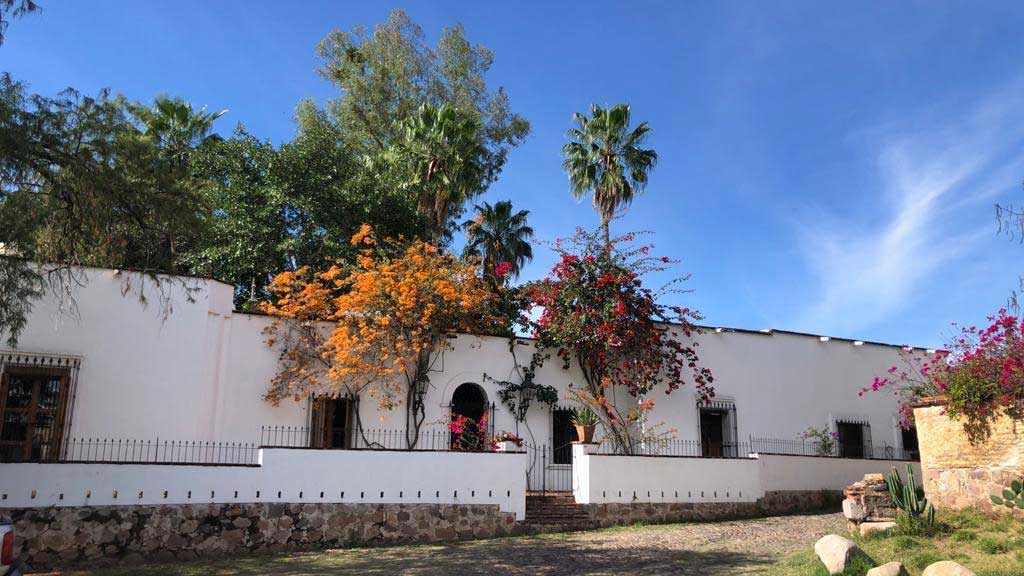 VIEW LARGER Kelly Potter's Alamos home.
VIEW LARGER Kelly Potter's Alamos home.
'Time to go'
For Kelly Potter and her husband, Steve, a two-week trip has turned into more than two months in Alamos.
“I run a dog charity down here called the Alamos Dog Foundation. So we came down here because I was doing a fundraiser for that. On March 6, it was. I had taken 10 days off work,” Potter said. “And while we were here everything kicked off with the COVID-19.”
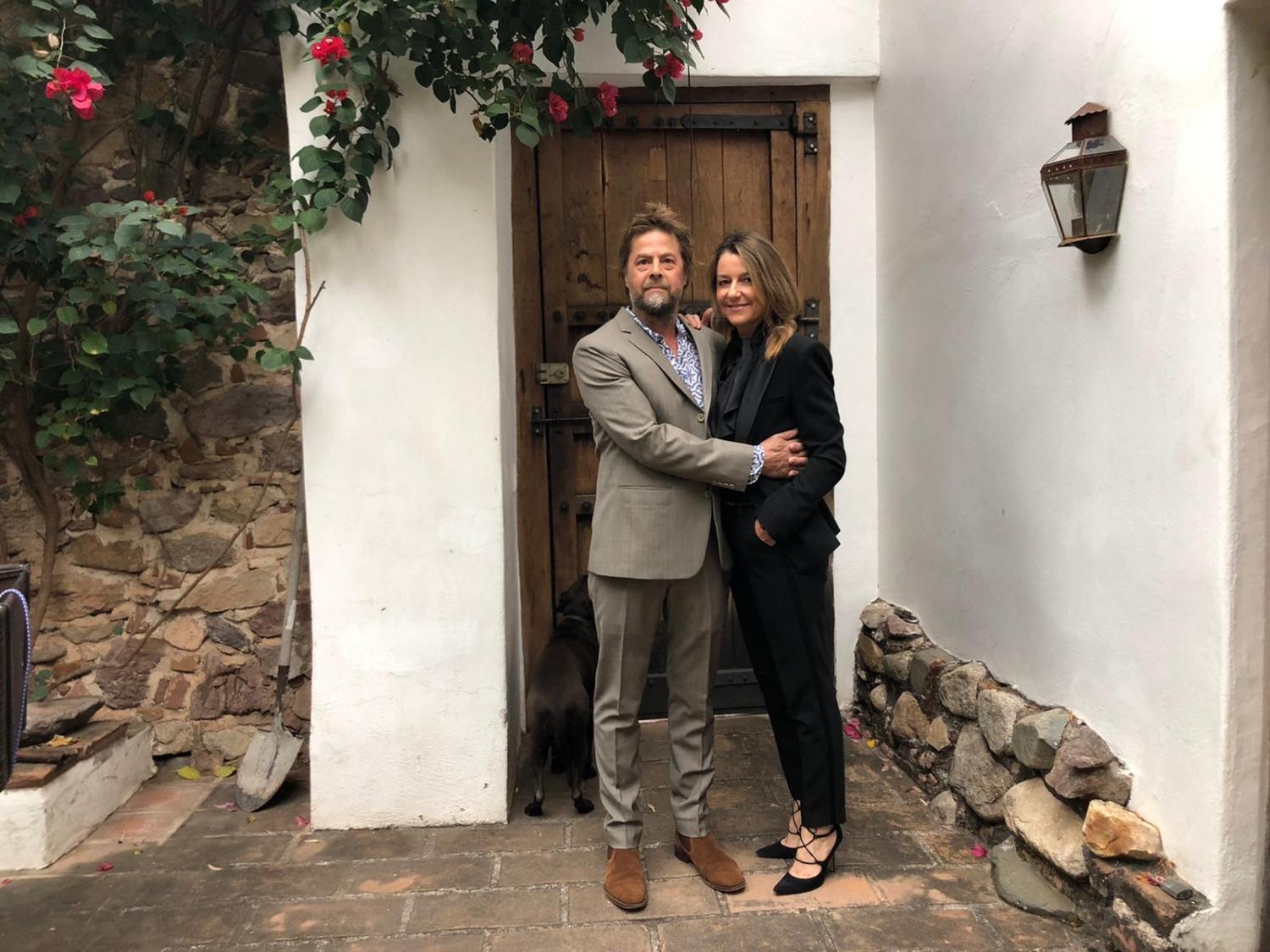 VIEW LARGER Kelly Potter with her husband, Steve Lawrence, dressed up for a fundraiser for the Alamos Dog Foundation on March 6, 2020.
VIEW LARGER Kelly Potter with her husband, Steve Lawrence, dressed up for a fundraiser for the Alamos Dog Foundation on March 6, 2020. So, they stayed in Alamos. Potter said it felt safer than returning to their Los Angeles home. There are still no confirmed cases of the coronavirus in Alamos. Plus, the cost of living is lower, a big factor for Potter who is out of work as a freelance set designer during the pandemic.
And even under Sonora’s strict stay-at-home orders, she’s enjoyed the extra time in the charming town.
“Well, I can’t say it’s been miserable. It’s been actually really nice,” she said, describing bike rides through the cobbled streets and front-yard happy hours at a safe social distance.
Still, Potter, her husband and their dogs are planning to head home soon, as California starts easing restrictions on movement.
“I think it’s kind of time to go back. We’ll have been here for 10 weeks,” Potter said.
Unlike expats in some parts of Mexico who have struggled to get back to the United States as airlines cancel flights amid the pandemic, Potter and her husband will drive back to Los Angeles. And they’re not worried about the border closure, either — U.S. citizens and residents are still allowed to cross.
But many expats still plan to keep riding out the pandemic in Sonora, however long it takes.
“We’re happy where we are," MacKay said. "And we just really hope that for not only us, but everyone, that this too shall pass."


By submitting your comments, you hereby give AZPM the right to post your comments and potentially use them in any other form of media operated by this institution.